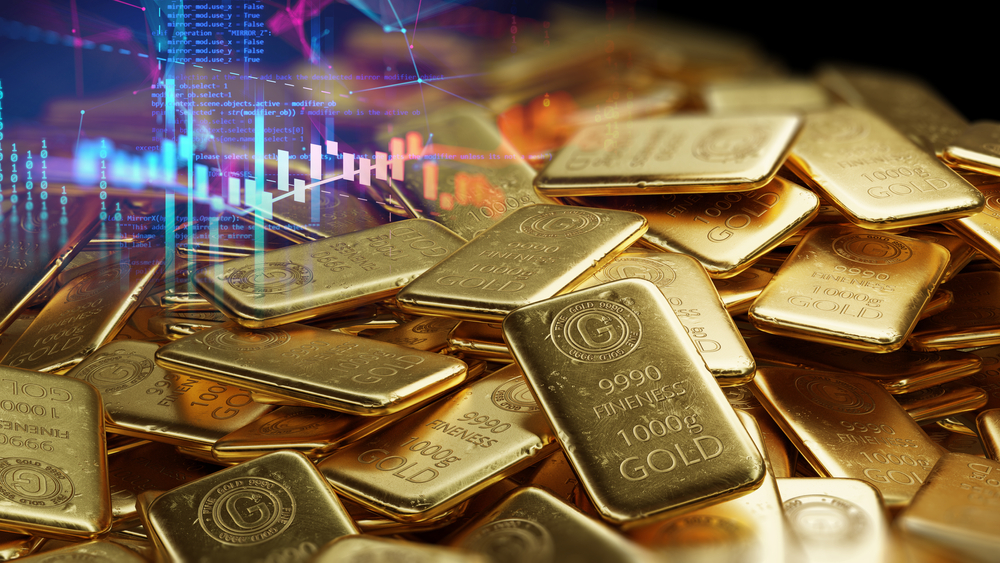The rally in gold was driven by concerns over geopolitical risks and economic uncertainty. Powell's comments on rate cuts were seen as favorable for non-yielding assets like gold, although he provided limited guidance on the timing and scale of the cuts, citing the U.S. economy and inflation as determining factors. The slight declines after the first series of surges earlier indicate that some more cautious investors took profits. Experts like Peter C. Earle of American Institute for Economic Research advises caution since the price of gold may retreat after hitting record highs. Some analysts point out factors such as upcoming US election uncertainty and potential sentiment shift. [1]
The ongoing risk aversion in markets, as evidenced by sharp losses on Wall Street and muted movements in other precious metals, suggests that demand for safe-haven assets like gold remains resilient. Silver also became bullish as its price hit the highest points since late December. This precious metal proved to be a secondary option to gold although it doesn’t have nearly the same upward trend. Price of silver is more closely tied to manufacturing sector, due to its industrial applications. During economic slowdowns, reduced demand for industrial use can lower the price of silver. [2]

Source: Investing.com

Source: Investing.com
According to data from International Monetary Fund (IMF), Central banks globally added 39 tons to their gold reserves in January 2024, marking the eighth consecutive month of net purchases. Turkey and China were the leading buyers during this period, with other countries also contributing to the increase in gold holdings. Six central banks reported notable increases in gold reserves, with Turkey, China, India, Kazakhstan, Jordan, and the Czech Republic all making significant purchases. Notable selling in January was limited, with the Central Bank of Russia (CBR) being the only significant seller, reducing its gold reserves by 3 tons. The pattern of frequent 3-ton declines in the CBR's gold reserves, followed by replenishment. World Gold Council analysts attribute this to the country's coin minting program.
China's economic data for January and February revealed a 3.5% year-on-year increase in imports and a 7.1% rise in exports, surpassing market expectations. This positive data indicates improved demand from China, a significant consumer of raw commodities. The People’s Bank of China emerged as the largest single gold buyer in 2023, adding 225 tons to its gold reserves.
The FED’s monetary policy will have a huge say in further “safe heaven” price development. However, the election year in the US may cause economic uncertainty to build up, which can lead to gold and other precious metals market rally. The robust central bank gold demand in January supports the expectation of another solid year for bank gold purchases in 2024. With ongoing tensions in the world, the reasons for owning gold remain relevant. [3]
Sources:
https://finance.yahoo.com/news/4-investing-moves-gold-prices-214329024.html
https://www.investopedia.com/why-did-gold-prices-hit-all-time-highs-8604361
https://www.kitco.com/news/article/2024-03-07/gold-silver-rally-bullish-charts-more-dovish-fed
https://smartasset.com/investing/gold-vs-silver-investment
https://asia.nikkei.com/Economy/Trade/China-s-exports-beat-forecasts-rise-7.1-in-January-February
* Past performance data is not a guarantee of future results.
[1,2,3] Forward-looking statements represent assumptions and current expectations that may not be accurate or are based on the current economic environment, which may change. These statements are not guarantees of future results. Forward-looking statements, by their nature, involve risk and uncertainty because they relate to future events and circumstances that cannot be predicted and actual developments and results may differ materially from those expressed or implied by any forward-looking statements.
Warning! This marketing material is not and should not be construed as investment advice. Past performance is no guarantee of future results. Investing in foreign currency may affect returns due to fluctuations. All securities transactions may result in both gains and losses. Forward-looking statements represent assumptions and current expectations that may not be accurate or are based on the current economic environment, which may change. These statements are not guarantees of future results. InvestingFox is a trademark of the company CAPITAL MARKETS, o.c.p., a.s. regulated by the National Bank of Slovakia.
David Matulay, analyst at InvestingFox
 Polish
Polish
 English
English
 Slovak
Slovak
 Czech
Czech
 Hungarian
Hungarian
 Italiano
Italiano





